Blogs
Energizing Europe's Future: How the Energy Industry Can Overcome Uncertainty and Drive Growth
Securing Europe’s Energy Future Amid Geopolitical and Market Shifts. As Europe moves away from Russian gas and toward a greener energy future, companies must navigate complex policy changes, rising costs, and global competition. From LNG infrastructure to renewable investment, and from nuclear debates to supply chain localization—every decision counts.
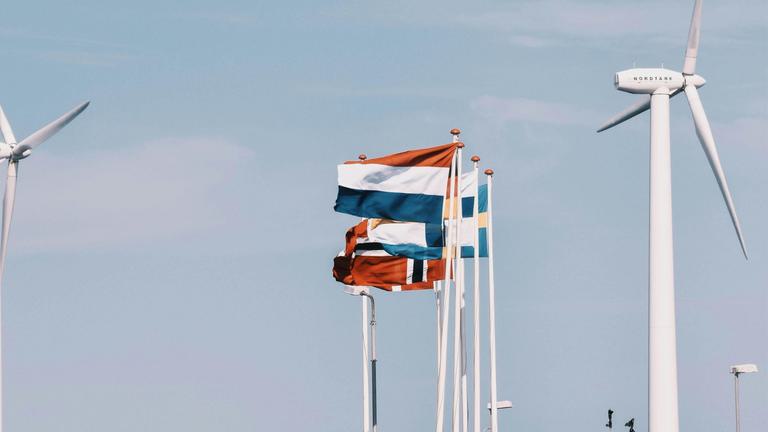
Since the beginning of the Ukraine war, the European energy sector has been at a turning point, facing unprecedented shifts driven by geopolitical tensions, regulatory changes, and the rapid transition toward renewable energy. The challenges of energy security, price volatility, supply chain disruptions, and decarbonization efforts require companies to adapt quickly to an evolving landscape.
Chiron Financial LLC provides strategic financial advisory and capital solutions to help energy businesses across Europe manage risks, seize opportunities, and navigate the complexities of a changing industry. By leveraging its expertise in M&A, capital raising, and financial restructuring, Chiron empowers European energy firms to build resilience and drive sustainable growth.
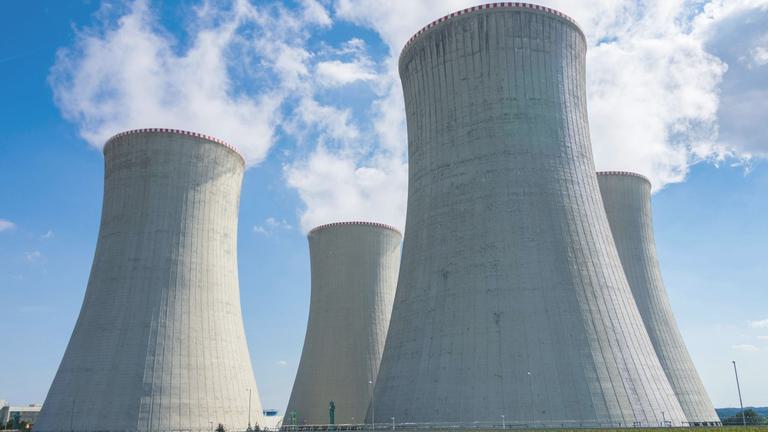
Key Market Shifts: Impacting the European Energy Industry
Energy Security and the Shift Away from Russian Gas
The European Union has significantly reduced its dependence on Russian natural gas following the geopolitical crisis in Ukraine. This shift has led to:
- Increased LNG Imports: Europe has turned to liquefied natural gas (LNG) imports from the U.S., Qatar, and other regions to replace Russian pipeline gas.
- New Infrastructure Investments: Countries are investing in renewable energies (solar panels) and infrastructures (windmills) ‚LNG terminals, storage facilities, and interconnectors to enhance energy security.
- Higher Costs and Market Volatility: The rapid pivot has led to price volatility, with energy-intensive industries struggling to manage operational costs. As a general matter, LNG transportation costs make that gas is always more expensive than it was before and that in the United States.
Regulatory and Policy Shifts
The European Commission continues to implement policies that reshape the energy market, including:
- Carbon Pricing Expansion: The EU Emissions Trading System (ETS) has been strengthened, leading to higher costs for fossil fuel-dependent industries.
- State Subsidies and Market Reforms: Governments are offering subsidies for renewable energy projects while also considering reforms to electricity market design.
- Energy Efficiency Mandates: Stricter efficiency regulations are driving demand for building retrofits, industrial decarbonization, and electrification.
Supply Chain Challenges and Industrial Competitiveness
The global energy transition has placed pressure on supply chains, impacting European energy firms through:
- Critical Mineral Shortages: The demand for lithium, cobalt, and rare earth elements — essential for batteries and renewables — has intensified, creating supply bottlenecks.
- Rising Costs of Equipment: Higher raw material and transportation costs are affecting the economics of renewable energy projects.
- Competition with the U.S. and China: Europe faces challenges in maintaining industrial competitiveness, especially with the U.S.’s Inflation Reduction Act (IRA) incentivizing green investments.
The Role of Nuclear Energy in Europe’s Future
As part of a diversified energy strategy, several European nations are revisiting nuclear energy:
- New Nuclear Investments: France, the UK, and several Eastern European countries are investing in next-generation nuclear reactors.
- EU Taxonomy Debate: The classification of nuclear energy as a ‘green’ investment remains contentious, influencing financial and regulatory frameworks.
- Public and Political Controversy: While some governments see nuclear as a reliable low-carbon energy source, opposition from environmental groups remains strong.
Acceleration of the Green Transition
Europe remains at the forefront of the global push for renewable energy, reinforced by the European Green Deal and ambitious net-zero targets. Key developments include:
- Massive Investments in Wind and Solar: The EU aims to generate 45% of its energy from renewables by 2030, requiring significant expansion of wind and solar capacity.
- Hydrogen and Battery Storage Growth: The EU is accelerating investments in green hydrogen and battery storage to balance the intermittency of renewables.
- Challenges in Grid Modernization: Existing power grids require upgrades to accommodate decentralized renewable energy production and cross-border electricity trading.
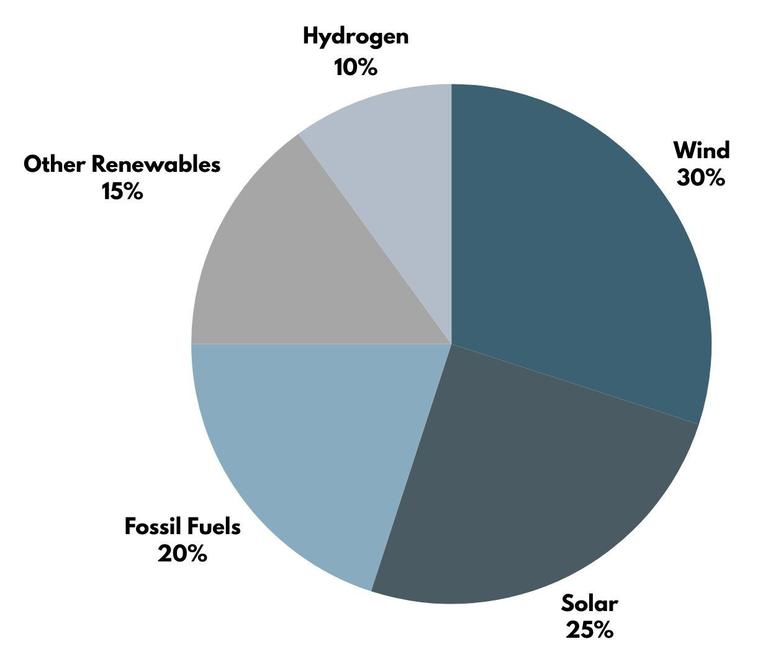
How Market Shifts Impact the European Energy Industry
Investment Priorities
Energy firms must secure capital for renewable energy expansion, grid modernization, and LNG infrastructure. This includes:
- Large-Scale Renewable Projects: Wind, solar, and hydrogen initiatives require long-term funding from private investors, government grants, and institutional financing.
- Grid Expansion and Upgrades: Strengthening interconnection between EU countries and investing in smart grid technologies will improve efficiency and resilience.
- LNG Terminal Development: With the transition away from Russian gas, continued investments in LNG terminals, pipelines and regasification facilities are critical for energy security.
- Strategic Partnerships: Collaborations with tech firms, financial institutions, and policymakers will drive funding and innovation in energy infrastructure.
Regulatory Adaptation
Companies must align with evolving EU policies, emissions targets, and carbon pricing mechanisms. This includes:
- Navigating the EU Emissions Trading System (ETS): Firms need strategies to offset higher carbon costs and comply with stricter emissions regulations.
- Leveraging Green Incentives: Understanding and securing funding from the EU Green Deal, Just Transition Fund, and other policy-driven investment programs.
- Adapting to National Variances: Regulatory requirements differ across EU member states, requiring businesses to develop country-specific compliance strategies.
Supply Chain Resilience
Diversifying suppliers and securing access to critical minerals will be key to mitigating disruptions. Companies should:
- Invest in Localized Production: Reducing dependency on imports by developing European-based supply chains for energy components (e.g. with dams, secondary power plants along watercourses, etc.).
- Strengthen Energy Storage and Raw Material Access: Building regional stockpiles and securing strategic agreements for rare earth minerals.
- Enhance Digital Supply Chain Tracking: Utilizing AI and blockchain technologies to improve logistics efficiency and mitigate risks in procurement.
Competitive Positioning
European firms need strategies to compete with U.S. and Chinese counterparts benefiting from government incentives. This includes:
- Leveraging EU Industrial Policy: Taking advantage of subsidies and low-interest loans to stay competitive against global players.
- Focusing on Advanced Technologies: Investing in energy innovation, including carbon capture, smart grids, and hydrogen electrolyzers, to maintain an edge in the global market.
- Building Stronger Trade Alliances: Strengthening partnerships within the EU and with non-EU allies to secure energy imports, technology transfers, and financial support.
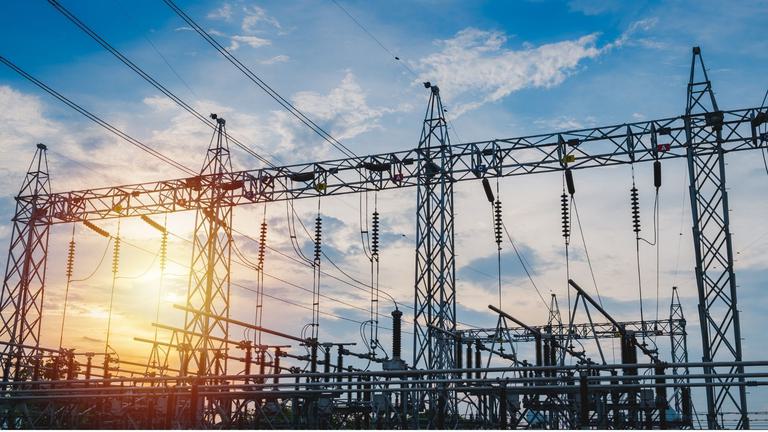
How Chiron Financial LLC Supports the European Energy Industry
Capital Raising
Chiron Financial is a trusted partner for energy companies seeking capital to fund new developments, infrastructure modernization, and strategic acquisitions. With a global outreach and a strong transatlantic presence, we specialize in securing cross-border capital through private equity, institutional investors, structured capital and debt financing. Whether navigating complex financing structures or tapping into international markets, our team ensures clients gain access to the right funding sources to fuel growth and achieve financial success.Mergers & Acquisitions (M&A) Advisory
The evolving energy landscape presents vast opportunities for consolidation and expansion. Chiron’s experienced transatlantic advisory team guides companies through complex M&A transactions, ensuring strategic alignment and maximizing stakeholder value. With offices in Houston (TX), Paris (France), Lausanne (Switzerland), London (UK), we are uniquely positioned to facilitate U.S.-European transactions, helping clients capitalize on cross-border investment opportunities and industry synergies.Financial Advisory Services
From restructuring distressed assets to optimizing capital structures, Chiron delivers tailored financial advisory solutions designed for long-term business sustainability. Our expertise spans the full financial spectrum, helping energy companies navigate market fluctuations, improve operational efficiency, and unlock value creation — both domestically and internationally.Industry-Specific Expertise
With deep-rooted knowledge of the energy sector, Chiron provides market-driven solutions that address regulatory complexities, evolving energy policies, and global investment trends. Our leadership team—comprising seasoned investment bankers, former private equity professionals, and C‑suite executives—brings a wealth of expertise, ensuring each engagement is executed with precision, creativity, and an unwavering commitment to success.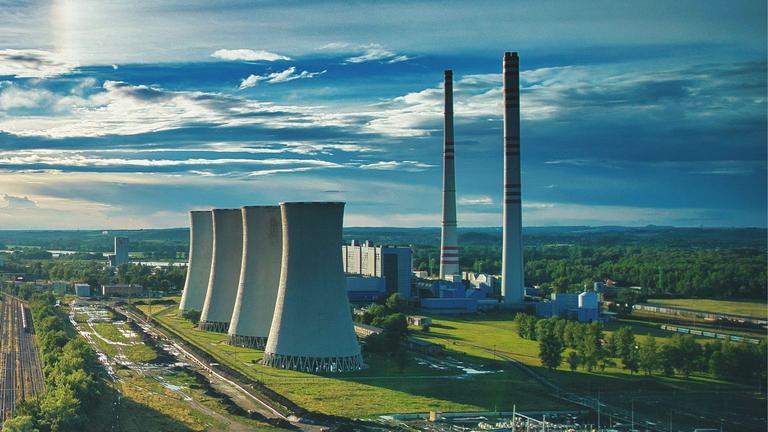
The European energy industry is navigating a transformative period driven by energy security concerns, the green transition, regulatory shifts, and global competition. Companies must remain agile in managing financial, operational, and strategic challenges.
Chiron Financial LLC serves as a trusted partner, offering capital solutions, M&A advisory, and financial expertise to help European energy firms adapt and thrive. By providing strategic guidance and securing essential funding, Chiron empowers businesses to build a resilient and sustainable energy future.
Citations:
- “Can the European Union Achieve Competitiveness through Energy?” Euractiv, 15 Dec. 2024, https://www.euractiv.com/section/eet/opinion/can-the-european-union-achieve-competitiveness-through-energy/. Accessed 20 Mar. 2025.
- Chiron Financial LLC. Chiron Financial: Expert Financial Solutions for Energy and Other Industries. Chiron Financial, 2025, https://www.chironfinance.com/. Accessed 18 Mar. 2025.
- “Delivering on Europe’s Clean Energy Future Requires Unity.” World Economic Forum, Oct. 2024, https://www.weforum.org/stories/2024/10/europe-green-energy-future-unity-wef-draghi/. Accessed 20 Mar. 2025.
- Ember. “European Electricity Review 2025.” Ember, 23 Jan. 2025, https://ember-energy.org/latest-insights/european-electricity-review-2025/. Accessed 18 Mar. 2025.
- European Commission. “Shedding Light on Energy in Europe – 2025 Edition.” Eurostat, 2025, https://ec.europa.eu/eurostat/web/interactive-publications/energy-2025. Accessed 18 Mar. 2025.
- “European Energy Security Requires Stronger Power Grids.” Atlantic Council, Aug. 2024, https://www.atlanticcouncil.org/blogs/energysource/european-energy-security-requires-stronger-power-grids/. Accessed 20 Mar. 2025.
- “European Union – World Energy Investment 2024 – Analysis.” International Energy Agency, 2024, https://www.iea.org/reports/world-energy-investment-2024/european-union. Accessed 20 Mar. 2025.
- “European Union’s Plan to Boost Clean Tech and Lower Energy Bills.” Reuters, 26 Feb. 2025, https://www.reuters.com/sustainability/whats-eus-plan-boost-clean-tech-lower-energy-bills-2025 – 02-26/. Accessed 20 Mar. 2025.
- “Germany’s Energy Transition Could Be €300 Billion Cheaper with More Efficiency, Finds Study.” Reuters, 20 Mar. 2025, https://www.reuters.com/business/energy/german-energy-transition-could-be-300-bln-euros-cheaper-with-more-efficiency-2025 – 03-20/. Accessed 20 Mar. 2025.
- “Impact of Large-Scale Hydrogen Electrification and Retrofitting of Natural Gas Infrastructure on the European Power System.” arXiv, Oct. 2023, https://arxiv.org/abs/2310.01250. Accessed 20 Mar. 2025.
- International Monetary Fund. “Integrating the EU Energy Market to Foster Growth and Resilience.” IMF, 13 Jan. 2025, https://www.imf.org/en/News/Articles/2025/01/13/sp-integrating-the-eu-energy-market-to-foster-growth-and-resilience. Accessed 18 Mar. 2025.
- Italy’s Grid Operator Terna to Invest €23 Billion over 10 Years.” Reuters, 2025.
- McKinsey & Company. “Europe’s Energy Evolution.” McKinsey & Company, 20 Feb. 2025, https://www.mckinsey.com/featured-insights/sustainable-inclusive-growth/charts/europes-energy-evolution. Accessed 18 Mar. 2025.
- Reuters. “Europe Seeks to Avoid Russian Energy if Sanctions Eased, Ministers and Execs Say.” Reuters, 11 Mar. 2025, https://www.reuters.com/business/energy/ceraweek-europe-seeks-avoid-russian-energy-if-sanctions-eased-ministers-execs-2025 – 03-11/. Accessed 18 Mar. 2025.
- Reuters. “Gazprom’s Grandeur Fades as Europe Abandons Russian Gas.” Reuters, 13 Mar. 2025, https://www.reuters.com/business/energy/gazproms-grandeur-fades-europe-abandons-russian-gas-2025 – 03-13/. Accessed 18 Mar. 2025.
Meet Our Authors

Candice Hubert
Director, Business Development
Ms. Hubert is the Director of Business development with significant experience in the finance world.
Greg Bouille
MD & Head of EMEA Region
Mr. Bouille is a trusted advisor for Chiron with over 25 years of experience in building, transforming, and developing global businesses, such as family-owned businesses, private equity-backed firms, SMBs and international corporations.